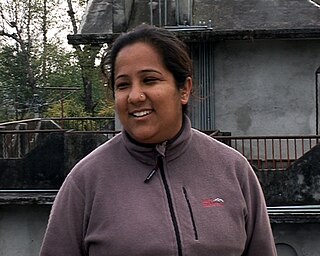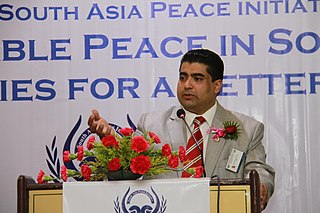
The United Nations Global Compact is a non-binding United Nations pact to encourage businesses and firms worldwide to adopt sustainable and socially responsible policies, and to report on their implementation. The UN Global Compact is a principle-based framework for businesses, stating ten principles in the areas of human rights, labor, the environment and anti-corruption. Under the Global Compact, companies are brought together with UN agencies, labor groups and civil society. Cities can join the Global Compact through the Cities Programme.

Sister Cities International (SCI) is a nonprofit citizen diplomacy network that creates and strengthens partnerships between communities in the United States and those in other countries, particularly through the establishment of "sister cities"—broad, long-term agreements formally recognized by civic leaders. Its mission is to "build global cooperation at the municipal level, promote cultural understanding and stimulate economic development". A total of 1,800 cities, states, and counties are partnered in 138 countries worldwide.

Education in Nepal was long based on home-schooling and gurukulas. This was similar to the former Indian system of education, in which the pupils would learn either in their homes or with reputed priests or Gurus. Before Nepal was declared a democratic country, the general public had no access to formal education. The first formal school, Durbar High School, established by Jung Bahadur Rana in 1853, was intended for the elite. The birth of Nepalese democracy in 1951 opened its classrooms to a more diverse population. Education in Nepal from the primary school to the university level has been modeled from the very inception on the Indian system, which is in turn the legacy of the old British Raj.
The second goal in the United Nations Millennium Development Goal is to achieve Universal Primary Education, more specifically, to "ensure that by 2015, children everywhere, boys and girls alike will be required to complete a full course of primary schooling." Education is vital to meeting all other Millennium Development Goals: "Educating children gives the next generation the tools to fight poverty and prevent disease, including malaria and AIDS." Despite the significance of investing in education, the recent report, Fixing the Broken Promise of Education for All: Findings from the Global Initiative on Out-of-School Children—produced by UNESCO Institute for Statistics and UNICEF found that the world has missed this 2015 target of universal primary education, and there are currently 58 million children, of primary school age, out of school worldwide.
Education For All (EFA) is a global movement led by UNESCO, aiming to meet the learning needs of all children, youth and adults by 2015. Education for All, is also a USA based 501 (c)(3) organization that strives to provide free education to disadvantaged underprivileged rural children, completely in line with UNESCO initiative.
Child Workers in Nepal (CWIN) is a non-governmental organization (NGO) working as an advocate for children's rights. CWIN supports street children, children subjected to child labour, children who are sexually exploited, and also those victimized by violence. The organization's objective is to protect the rights of children in Nepal. It was established in 1987 by a group of students at Tribhuvan University who, upon investigating the conditions of children living on the streets in Kathmandu, Nepal, recognized the need for advocacy in this area. As a "watchdog" in the field of child rights in Nepal, CWIN acts as a voice for the disadvantaged and exploited children. It does this by lobbying, campaigning, and pressuring the government to protect and promote children's rights, and to end exploitation, abuse and discrimination against children.

Freeing nearly 13,000 girls from indentured servitude has been a major accomplishment of the Nepal Youth Foundation (NYF), a U.S.-based 501(c)(3) non-profit organization. The mission of NYF is to provide children in Nepal with education, housing, medical and nutritional care, and general support.

Aditya Jha is an India-born Canadian entrepreneur, philanthropist and social activist. A globetrotter, his business portfolio consists of several startups and company turnarounds with interests in Canada, India, Thailand and Nepal. He also runs several philanthropic initiatives through his Private Charitable Foundation, promoting education and nurturing entrepreneurship to increase opportunities for the less fortunate. Jha takes special interest in nurturing prosperity and financial independence amongst Canadian First Nations (aboriginal) communities and individuals through education scholarships at top Canadian universities and a project that nurtures entrepreneurship. Jha is 2012 inductee to the Order of Canada, Canada's highest civilian award.

Sushma Joshi is a Nepali writer, filmmaker based in Kathmandu, Nepal. Her fiction and non-fiction deal with Nepal's civil conflict, as well as stories of globalization, migration and diaspora.

Pushpa Basnet is a social worker and the founder/president of Early Childhood Development Center (ECDC) and Butterfly Home, non-profit organizations, in Kathmandu, Nepal. Her organization works to strengthen the rights of children living behind bars with their incarcerated parents.
Society for Local Integrated Development Nepal , a nongovernmental, apolitical and nonprofit organization, established in 1997 has been working in attaining optimal health of the people of Nepal by addressing different issues like sexual and reproductive health, non-communicable diseases, human resources for health or Health human resources and other health related issues as crosscuts. SOLID Nepal works to generate evidences, and promotes health & healthy behaviour of the people through research study, media & publications, advocacy, awareness & sensitization, trainings and social mobilization in a holistic manner by and with concerned stakeholders.
The Kathmandu Debates is a high school debating championship led by the youth of the Sano Sansar Initiative. The program aims to provide a platform to encourage young people to engage in social, political, and sustainable economic development issues through the use of the positive aspects of debating.

Jagadish Ghimire (Nepali: जगदीश घिमिरे; was a Nepalese writer, political analyst and development worker.
READ Global is a non-profit organization operating in rural South Asia and headquartered in San Francisco, California. Founded on the belief that improved access to educational resources creates lasting social change in developing communities, READ partners with rural villages to build Community Library and Resource Centers. READ Centers offer a variety of programs – from literacy and women's empowerment to information communications technology (ICT) and livelihood skills training. READ currently works with communities in rural Bhutan, India and Nepal. As of August 2013 there were over 69 READ Centers in India, Bhutan, and Nepal, and over two million individuals had access to these centers.

South Asia Peace Initiative (SAPI) promotes peace and cooperation through leadership consultations and grassroots activities in South Asian nations is a civil society initiative. There had been already 17 series of SAPI conference organized in Nepal, India, and Afghanistan and this initiatives will further continue. Former Minister of the Ministry of Co-operatives and Poverty Alleviation (Nepal) of the Government of Nepal and Member of the Nepalese Constituent Assembly Ek Nath Dhakal is a convener of South Asia Peace Initiative.
Prayas Nepal is a non-profit, non-governmental organization in Nepal. It is registered with the District Administrative Office of Kathmandu. Prayas Nepal aims to protect the rights of children and the underprivileged including orphans, women and elderly in Nepal by helping them to access essential services such as education and health care.
Global citizenship education (GCED) is a form of civic learning that involves students' active participation in projects that address global issues of a social, political, economic, or environmental nature. The two main elements of GCE are 'global consciousness'; the moral or ethical aspect of global issues, and 'global competencies', or skills meant to enable learners to participate in changing and developing the world. The promotion of GCE was a response by governments and NGOs to the emergence of supranational institution, regional economic blocs, and the development of information and communications technologies. These have all resulted in the emergence of a more globally oriented and collaborative approach to education. GCE addresses themes such as peace and human rights, intercultural understanding, citizenship education, respect for diversity and tolerance, and inclusiveness.
Tevel b’Tzedek is a non-governmental organization (NGO) based in Israel that promotes sustainable development in developing countries through the formation of thematic-based groups and community mobilization. It was established in 2007 by Rabbi Micha Odenheimer, who wanted to provide young Jewish people with meaningful social justice experience abroad with the intention of creating strong Jewish leaders invested in the idea of Tikkun Olam. Since 2007, hundreds of Jewish volunteers from communities in Israel, the United States, Germany, Ukraine, South Africa, Australia and other countries have traveled to Nepal and Haiti to participate in community development projects.
Volunteers Initiative Nepal (VIN) is a non-governmental organization (NGO) established and registered in 2005 in Kathmandu, Nepal by a group of social activists, educationalists, development workers, and other professionals. VIN is a non-religious, non-political, and non-profit organization. VIN focuses on empowerment projects in marginalized communities of Nepal through its programs and projects VIN mobilizes local and international volunteers and interns in developmental and humanitarian projects including research, education, training, and counseling.
The Globally Responsible Leadership Initiative(GRLI) is a non-profit community of businesses as well as business schools and educational institutions. Based in Belgium, Brussels, its purpose is to catalyse the development of globally responsible leadership and practice in organisations and society worldwide. The GRLI was founded in 2004 and counts numerous organisations that are its partners and members. GRLI is an official partner of United Nations Sustainable Development Goals for Quality Education and Responsible Consumption and Production.









